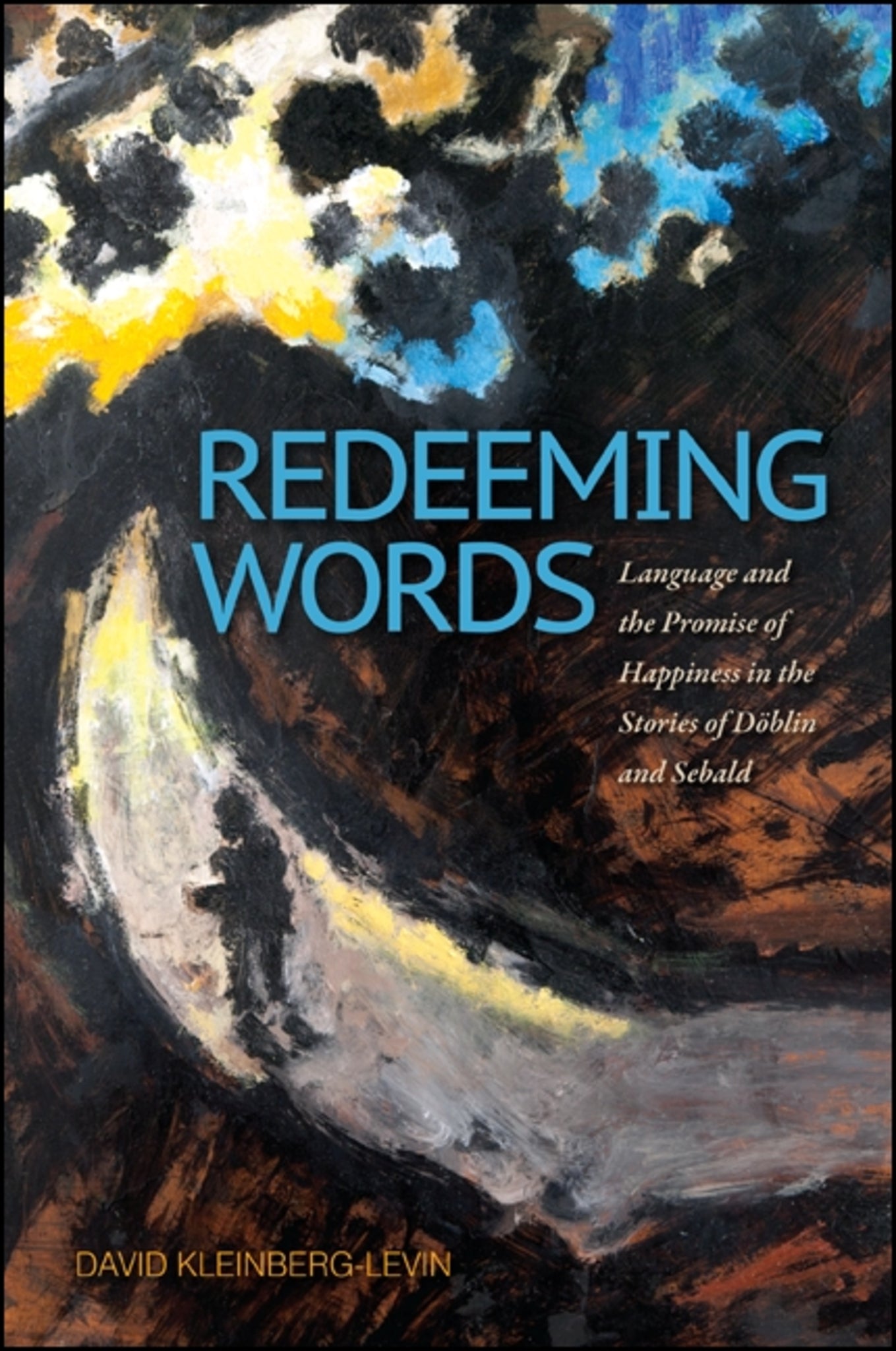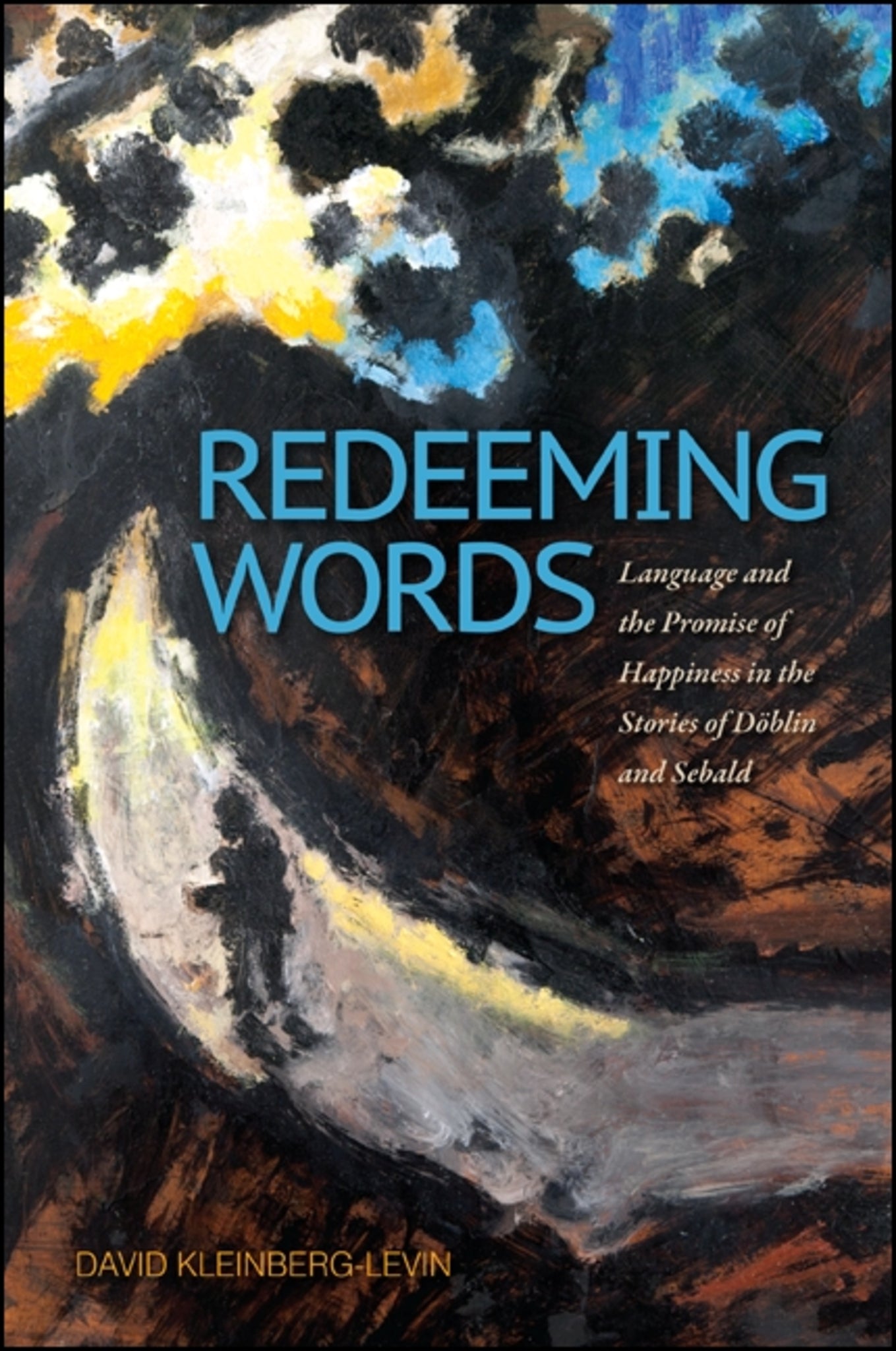We're sorry. An error has occurred
Please cancel or retry.
Redeeming Words

Some error occured while loading the Quick View. Please close the Quick View and try reloading the page.
Couldn't load pickup availability
- Format:
-
02 July 2014

Probing study of how literature can redeem the revelatory, redemptive powers of language.
In this probing look at Alfred Döblin's 1929 novel Berlin Alexanderplatz and the stories of W. G. Sebald, Redeeming Words offers a philosophical meditation on the power of language in literature. David Kleinberg-Levin draws on the critical theory of Benjamin and Adorno; the idealism and romanticism of Kant, Hegel, Hölderlin, Novalis, and Schelling; and the nineteenth- and twentieth-century thought of Nietzsche, Heidegger, and Derrida. He shows how Döblin and Sebald-writers with radically different styles working in different historical moments-have in common a struggle against forces of negativity and an aim to bring about in response a certain redemption of language. Kleinberg-Levin considers the fast-paced, staccato, and hard-cut sentences of Döblin and the ghostly, languorous, and melancholy prose fiction of Sebald to articulate how both writers use language in an attempt to recover and convey this utopian promise of happiness for life in a time of mourning.


"Redeeming Words is an elegant, highly learned, and incisive exploration of how language—and thus the greatest literature of our time—both registers the experience of the loss of utopia and affirms hope by making the loss more clear. It takes as its theme the most profound reflections on the role of words in a time of abandonment and disenchantment. Kleinberg-Levin argues not only that words communicate this sense of loss but constitute it by failing to achieve total mastery and transparency and self-consciously thematizing the corruption and also affirmative power of words. At the deepest level, this study analyzes words and what the very existence of words can confer to individuals and communities." — Peter Fritzsche, author of The Turbulent World of Franz Göll: An Ordinary Berliner Writes the Twentieth Century
Acknowledgments
Prologue
Part I. Alfred Döblin’s Berlin Alexanderplatz: Language as the Causality of Fate
1. Fatality: Character as Fate
2. Natural History
3. Döblin’s Conception of the Modern Novel
4. The Language of Fate
5. Language as the Causality of Freedom
6. Paradise in Words: The Promise of Happiness
Part II. Damals: The Melancholy Science of Memory in W. G. Sebald’s Stories
1. Telling Stories: A Question of Transmissibility
2. Natural History: Becoming in Dissolution
3. Of Humans and Other Animals
4. As Time Goes By: Words from the Embers of Remembering
5. Stoicism, Skepticism, and the Unhappy Consciousness: Sebald’s Phenomenology of Spirit
6. Beauty: Symbol of Morality in a Phenomenology of Spirit
7. On a Journey through Disenchantment
Epilogue
Notes
Bibliography
Index



